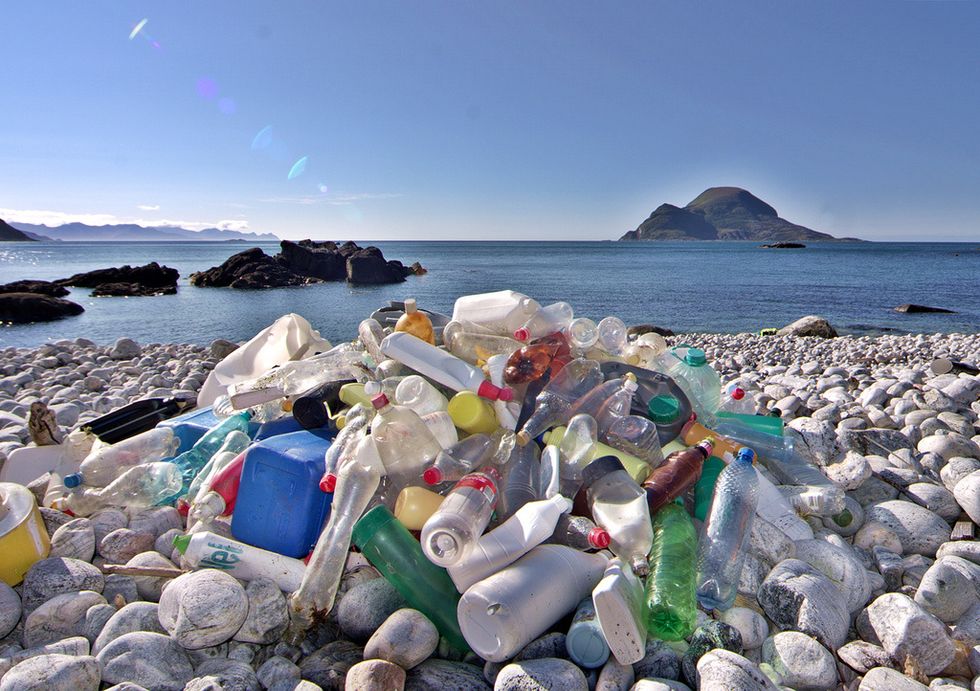Plastic is a material that can be very useful for longterm purposes. However, when it is used just once and then thrown away, it can be awfully damaging to us and our environment. This is known as single-use, or disposable, plastic, which describes items like plastic cups, plastic silverware, straws, water bottles, and food packaging. It is common knowledge that the extreme excess of plastic is a contributing factor to the deterioration of our earth, oceans, creatures, but do you know about the health risks, associated with it?
Why should you care? Regardless of if you never use any plastic products in your lifetime, you will likely still ingest particles of toxic substances that creep into the water supply, and our food. This happens because plastic is not biodegradable, meaning that it does not break down into soil, and subsequently releases those substances into the earth and water. Because of this, it really does make a difference, when a few of us become aware of the plastic that we are consuming.
Bisphenol-A, better known as BPA, a toxic chemical that behaves like estrogen, is found in many things, including plastic packaging, bottles, and containers. Countless scientific studies have found that BPA can dramatically affect our hormones, and can even cause cancer. To make things scarier, the damage from BPA that you experience now, will affect your future offspring and continue for generations. This makes cutting back on your plastic consumption pretty important.
The effects that plastic has, on the environment and other creatures, is also quite bothersome. Landfills are out of control. It is estimated that around 50% of recycled plastic ends up being dumped into landfills. For instance, a plastic shopping bag takes up to twenty years to break down, and a plastic bottle takes around four-hundred and fifty years to do so… Let that sink in. Plastic can also be life-threatening for all kinds of wildlife, when becoming tangled, injured, choked, and more.
Our oceans are heavily impacted by plastic, too. In about thirty years, the ocean scientists expect the ocean to house more plastic than fish. Much of the plastic that is put into landfills, ends up finding its way into the ocean, via wind, wildlife, or who knows what else. It is common for animals to become tangled in plastic packaging, and to mistake some plastic items for food or prey. This obviously leads to devastating and torturous consequences for these creatures. This does not have to continue to pile up…
Society is beginning to halt the use of single-use plastic. Within eighteen states in India, you can actually be fined for using single-use plastics. Since the beginning of June, Ikea has been phasing out the use single-use plastic, in their stores and food courts. However, even with all of this progress, plastic production and consumption numbers are still expected to grow, which makes it essential to get the word out there. More below ↓
Cutting back on single-use plastic usage, is remarkably easy to do. A simple way to begin, is to reject plastic bags at retail and grocery stores, and instead bring reusable shopping bags. You have likely seen these canvas-material bags in Kroger, Walmart, and similar retailers, usually near the check-out aisles. They are also super easy to buy online: Right Here
Another way to reduce your plastic usage is to invest in a stainless steel water bottle, and stop using disposable, plastic water bottles. These can be found at many retail stores, and of course online. Here is a link to where you can order one now: Click here
Unfortunately, we cannot undo all of the plastic that we have consumed, in the past. We can only shape our future. Luckily, we have alternatives to help us live free of plastics, and chemicals like BPA.
Sources:
https://www.ecowatch.com/india-plastics-ban-2581189130.html
http://money.cnn.com/2018/06/07/news/ikea-bans-single-use-plastic/index.html
http://www.plasticfreechallenge.org/what-is-single-use-plastic/
https://reportshealthcare.com/are-your-bpa-free-products-actually-safe/
https://www.vox.com/2018/6/25/17488336/plastic-straw-ban-ocean-pollution






















